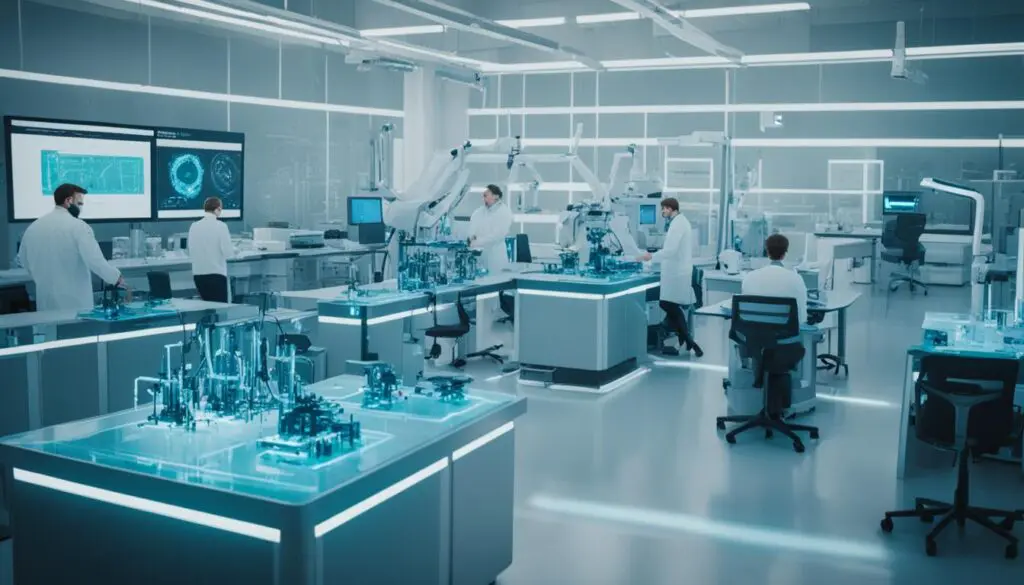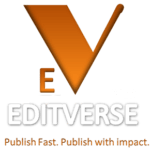Imagine a world where data analysis in medical research is not limited by human capacity. Where innovative solutions powered by artificial intelligence (AI) can help us unlock the mysteries of diseases, accelerate breakthroughs, and improve patient outcomes. This is the reality we are entering with the emergence of Chat GPT.
Chat GPT’s Role in Advancing Medical Research
Transforming Healthcare Through Artificial Intelligence
Components & Features
- ✓ Natural Language Processing
- ✓ Machine Learning Algorithms
- ✓ Data Analysis Capabilities
- ✓ Pattern Recognition
Technical Specifications
| Parameter | Value |
|---|---|
| Model Version | GPT-4 |
| Training Data | Medical Literature |
Best Practices
- Verify AI-generated insights
- Maintain human oversight
- Document AI assistance
- Follow ethical guidelines
Implementation Guide
As someone who has witnessed the impact of medical research firsthand, I understand the importance of leveraging cutting-edge technology to drive innovation. The potential of AI-driven solutions like Chat GPT in the field of healthcare is immense, and its role in advancing medical research cannot be overstated.
Whether you’re a researcher tirelessly working to uncover new discoveries, a healthcare professional striving to provide the best patient care, or someone who believes in the power of AI to transform lives, Chat GPT is a game-changer. Its ability to generate human-like responses and understand natural language inputs has opened up new possibilities for data analysis, precision in diagnosis, and navigating vast amounts of medical literature.
Join me as we explore the exciting ways in which Chat GPT is revolutionizing medical research and shaping the future of healthcare innovation.

Key Takeaways:
- Chat GPT is an AI tool developed by OpenAI that is revolutionizing medical research.
- With its natural language processing capabilities, Chat GPT enhances precision in clinical diagnosis and enables researchers to explore vast amounts of medical literature.
- Chat GPT can assist medical students, healthcare professionals, and researchers in staying up-to-date with the latest developments in their fields.
- While Chat GPT offers immense potential, it also raises ethical considerations and limitations that must be addressed.
- The future prospects of AI in medical research are promising, with ongoing advancements in technology and increasing adoption of AI-driven approaches.
The Emergence of Chat GPT in Medical Research
Chat GPT has emerged as a game-changer in medical research, revolutionizing data analysis and driving innovation in healthcare. With its ability to generate human-like responses and understand complex medical concepts, Chat GPT offers new opportunities for researchers to explore and analyze vast amounts of data. Through advanced machine learning algorithms, it can identify patterns, extract valuable insights, and predict outcomes based on large datasets, enabling researchers to make significant advancements in medical knowledge.
One of the key areas where Chat GPT has made a remarkable impact is in enhancing precision in clinical diagnosis. By leveraging AI capabilities, Chat GPT can assist healthcare professionals in analyzing symptoms, identifying potential diagnoses, and recommending appropriate treatment options. This not only improves patient care but also streamlines the diagnostic process, leading to more accurate and efficient healthcare delivery.
The power of natural language processing (NLP) in medicine has further amplified the capabilities of Chat GPT. It can understand and analyze medical literature, assist in literature reviews, and provide intelligent summaries of research articles. This helps researchers navigate the vast amount of medical knowledge more efficiently, allowing them to extract relevant information for their studies and stay up-to-date with the latest advancements in their field.
Revolutionizing Data Analysis and Healthcare Innovation
Chat GPT’s emergence in medical research has transformed the way data analysis is conducted and has sparked innovation in healthcare. By leveraging AI-driven insights, researchers can analyze large and complex datasets more effectively, leading to the discovery of new patterns and trends. These data-driven insights empower researchers to make informed decisions and drive innovation in healthcare solutions.
Enhancing Precision in Clinical Diagnosis with AI
The precision and accuracy of clinical diagnosis are vital for effective patient care. With the help of AI capabilities, Chat GPT enhances clinical decision-making by assisting healthcare professionals in analyzing symptoms, identifying potential diagnoses, and suggesting appropriate treatment options. By leveraging machine learning algorithms, Chat GPT can process vast amounts of patient data and provide valuable insights that contribute to more accurate and efficient diagnoses.
The Power of Natural Language Processing in Medicine
Natural language processing (NLP) has revolutionized the way researchers and healthcare professionals interact with medical literature. Chat GPT’s NLP capabilities allow it to understand complex medical concepts, analyze research articles, and provide intelligent summaries. By leveraging NLP, researchers can efficiently navigate the vast landscape of medical knowledge, extract relevant information, and stay at the forefront of advancements in their respective fields.
Chat GPT in Medical Research: Transforming Traditional Approaches
The integration of Chat GPT in medical research has transformed traditional approaches and revolutionized the way researchers analyze data and conduct studies. With its AI-driven capabilities, Chat GPT can assist researchers in various stages of the research process. It can help identify potential research topics, generate research questions, and even provide insights into experimental design. By leveraging its natural language processing capabilities, Chat GPT can extract relevant information from medical literature, enabling researchers to conduct comprehensive literature reviews and stay updated with the latest advancements in their field.
Moreover, the use of chatbots and virtual assistants powered by Chat GPT has streamlined data collection, participant recruitment, and study management. These AI-driven tools provide efficient and personalized interactions with participants, facilitate data analysis, and enhance the overall research experience.
Chat GPT’s innovation in healthcare data analysis has led to significant advancements in medical research. Researchers can now harness the power of AI to quickly analyze large datasets, identify patterns, and extract valuable insights. This not only saves time but also enables researchers to make informed decisions based on data-driven evidence, ultimately improving patient outcomes.
Navigating the Complex Landscape: Ethics and Limitations of Chatbots in Medical Studies
While the integration of Chat GPT and other AI tools in medical research offers numerous benefits, it also raises ethical concerns and comes with certain limitations. One of the challenges is ensuring compliance with copyright laws and addressing potential infringement when generating AI-generated medical content. Researchers must be cautious when using external sources of information and ensure proper attribution and adherence to copyright regulations.
Additionally, maintaining transparency in AI applications is crucial to build trust and ensure the responsible use of AI-generated content in medical research. Addressing biases in AI algorithms and datasets is another critical aspect to consider, as biased AI-generated content can have significant implications in diagnosing and treating patients.
Researchers must also prioritize accuracy and credibility when using AI-generated medical content, as errors or inaccuracies can negatively impact patient care and research outcomes. By establishing guidelines and best practices, addressing these ethical and legal concerns, and ensuring the accuracy and credibility of AI-generated content, researchers can navigate the complex landscape of using chatbots and AI tools in medical studies responsibly.
Addressing the Challenges of Copyright and Medical Legalities
When generating AI-generated medical content, researchers face challenges related to copyright and medical legalities. It is essential to ensure compliance with copyright laws and avoid potential infringement. Proper attribution and adherence to copyright regulations are crucial to protect intellectual property and respect the rights of content creators. By incorporating citation practices and obtaining the necessary permissions, researchers can use external sources of information responsibly and ethically.
Maintaining Transparency and Addressing Bias in AI Applications
Transparency in AI applications is vital to ensure accountability and foster trust among all stakeholders, including researchers, healthcare professionals, and patients. Researchers should provide clear documentation and disclosure about the AI technologies used, their limitations, and their potential impact on research outcomes. Addressing bias in AI algorithms and datasets is crucial to eliminate unfair discrimination and ensure equitable access to healthcare services. By regularly evaluating and auditing AI systems, researchers can minimize biases and promote fairness in AI-generated content.
Ensuring Accuracy and Credibility in AI-Generated Medical Content
Accuracy and credibility are paramount when using AI-generated medical content. Researchers must carefully verify and validate the information generated by AI tools to ensure its reliability and unambiguous interpretation. Regular quality assessments and thorough fact-checking processes can help minimize errors and inaccuracies in AI-generated content. By adhering to rigorous standards and guidelines for content creation, researchers can maintain the integrity and quality of AI-generated medical content.
| Challenges | Considerations |
|---|---|
| Copyright and legal compliance | – Ensure proper attribution – Adhere to copyright regulations |
| Transparency in AI applications | – Document and disclose AI technologies used – Address limitations and potential impact |
| Bias in AI algorithms and datasets | – Regularly evaluate and audit AI systems – Minimize biases for equitable access |
| Accuracy and credibility of AI-generated content | – Verify and validate information generated – Conduct quality assessments and fact-checking |
Conclusion
In conclusion, Chat GPT has revolutionized medical research by leveraging AI-driven insights and innovations in healthcare data analysis. Its emergence in the field of medicine has led to enhanced precision in clinical diagnosis, improved efficiency in research processes, and transformed traditional approaches. By harnessing the power of artificial intelligence, researchers can now analyze vast amounts of data, uncover patterns, and make significant advancements in medical knowledge.
However, it is essential to consider the ethical considerations, limitations, and challenges associated with using AI tools like Chat GPT in medical studies. Addressing copyright challenges and ensuring the accuracy and credibility of AI-generated content are paramount. Transparency and addressing biases in AI applications are also crucial to maintaining trust and ensuring responsible use in medical research.
Despite these challenges, the future prospects of AI in medical research are promising. With ongoing advancements in AI technology and the increasing adoption of AI-driven approaches, the healthcare industry can continue to leverage Chat GPT and other AI tools to drive innovation and improve patient outcomes. As researchers navigate the complex landscape of AI in healthcare, establishing clear guidelines and best practices will be instrumental in maximizing the potential of AI and shaping the future of medical research.
FAQ
What is Chat GPT’s role in advancing medical research?
Chat GPT plays a significant role in advancing medical research by revolutionizing data analysis and healthcare innovation. Its ability to generate human-like responses and understand natural language inputs enables researchers to explore vast amounts of medical literature, enhance precision in clinical diagnosis, and stay up-to-date with the latest developments in the field.
How does Chat GPT revolutionize data analysis in medical research?
Chat GPT revolutionizes data analysis in medical research by leveraging advanced machine learning algorithms to identify patterns, extract valuable insights, predict outcomes, and make significant advancements in medical knowledge. Its AI-driven capabilities enable researchers to uncover new discoveries and drive innovation in healthcare.
What is the power of natural language processing (NLP) in medicine?
Natural language processing (NLP) enables Chat GPT to understand medical literature, assist in literature reviews, and provide intelligent summaries of research articles. This allows researchers to navigate the vast amount of medical knowledge more efficiently and extract relevant information for their studies.
How does Chat GPT transform traditional approaches in medical research?
Chat GPT transforms traditional approaches in medical research by assisting researchers in various stages of the research process. It can help identify research topics, generate research questions, provide insights into experimental design, and streamline data collection, participant recruitment, and study management through the use of chatbots and virtual assistants.
What are the ethical considerations and limitations of using Chat GPT in medical studies?
Using Chat GPT in medical studies raises ethical concerns, such as complying with copyright laws, maintaining transparency, ensuring accuracy and credibility in AI-generated medical content, and addressing biases in AI algorithms and datasets. Researchers must establish guidelines and adhere to best practices to navigate these challenges responsibly.
